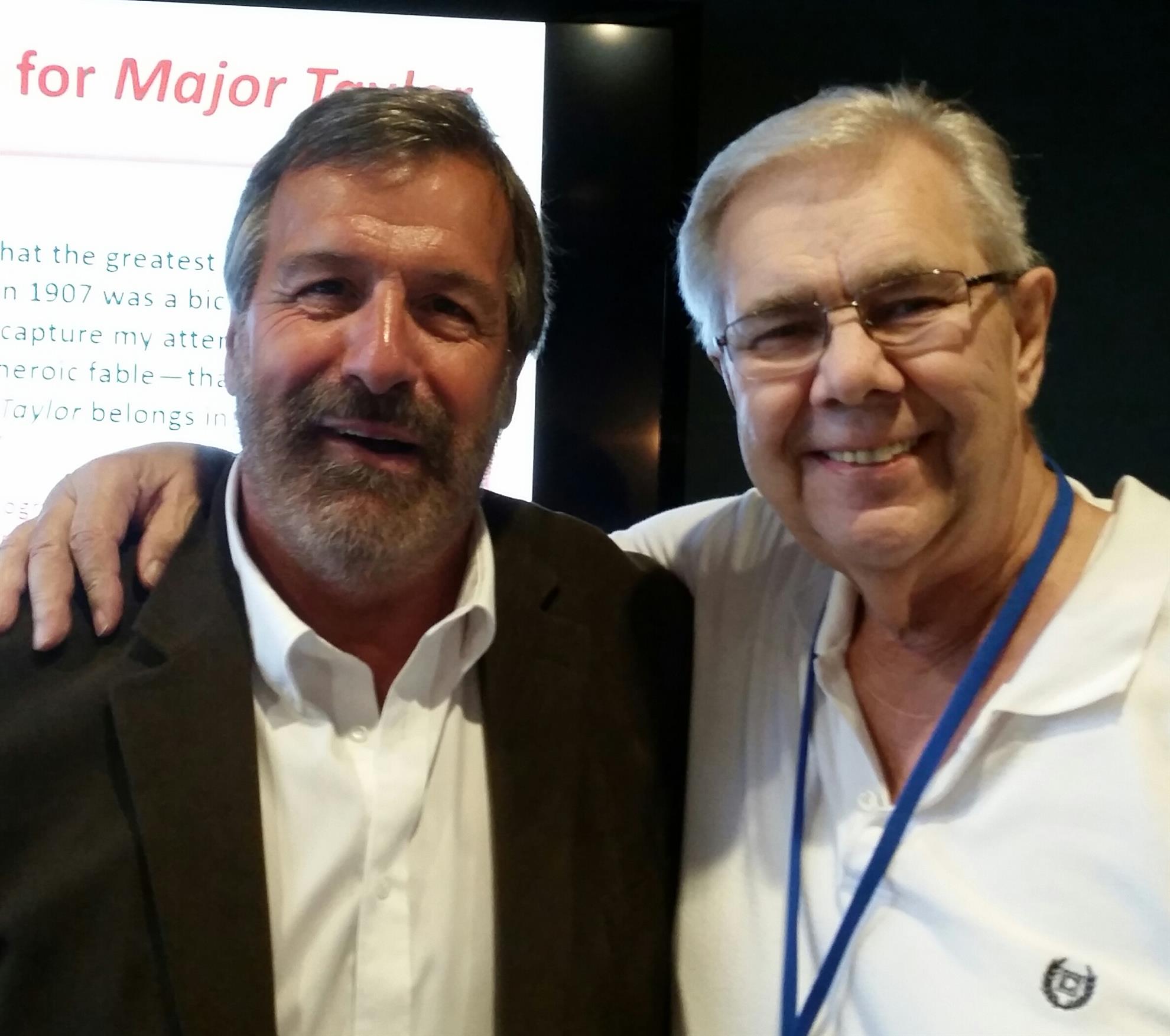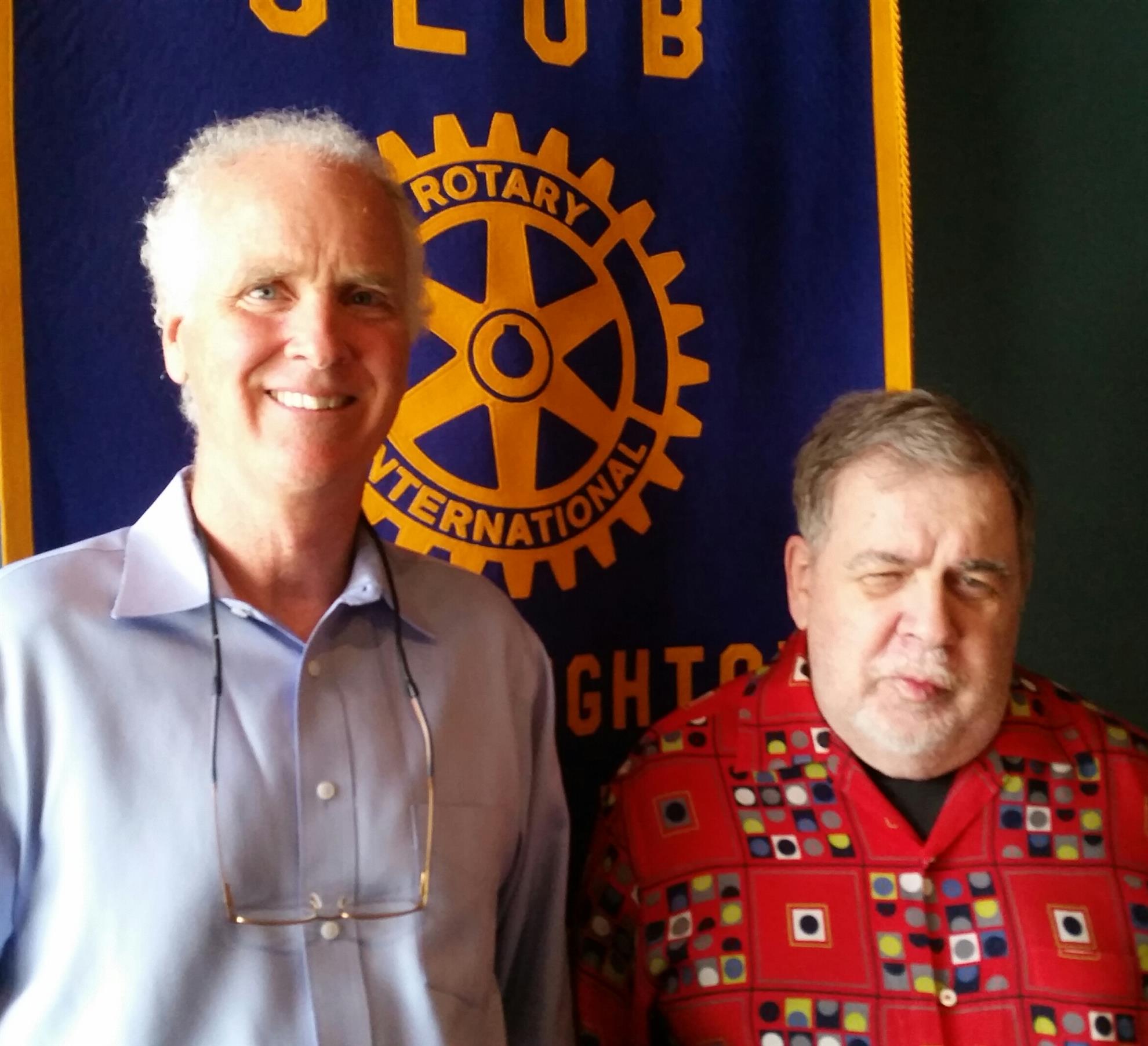Meeting Recap - August 2, 2016
Posted by Jeff Benson on Aug 02, 2016
Gerry Tietz opened the meeting with the Pledge and invocation.
Our Guests today were Pat Whelan (PJW Automotive) and Mary Kunesh-Podein, Chair of the New Brighton Parks, Recreation and Environment Commission. Mary was on the Rotary Group Study Exchange Team to Lebanon in 2000.
Mark Beisswenger reminded the Stockyard Days Rotary Bingo volunteers of their assignments for this weekend.
Pat Whelan announced a new Stockyard Days event this year; bike racing. The events will run from 10AM - 6PM on Sunday August 7th. Get more details here.
Todd Kruse said that the Chamber is planning a County Road E2 bridge opening party at the Exchange. The opening should happen around August 12th, so stay tuned.
George Winiecki would like everyone to help with the Stockyard Days Parade Hot Dog Feed on Thursday August 11th. Please be there by 5PM or you'll have to walk a long way.
If you need any other information about Stockyard Days, you can access the website here.
Visitor Mary Kunesh-Podein announced her candidacy for the State House of Representatives, District 41B. More information is available on her website.
Cindy Carlson said that our Matching Grant Request to educate Syrian refugee children in Lebanon should be ready for submission by the end of August.

George Winiecki and Gerry Tietz celebrated their birthdays today. As mentioned in the previous newsletter, we are entering a kinder and gentler era of birthday celebration; sans birthday hats. Of course we still sang to the birthday boys, which is torture enough! George and Gerry are shown above.
Gerry Tietz introduced our speaker, Terry Kerber, author of "The Story of Major Taylor". It is the story of the best athlete you never heard of. Marshall "Major" Taylor was born in 1878 to black parents in Louisville, Kentucky. After moving to Indianapolis, Taylor's father was employed as a coachman for a wealthy white landowner. Taylor became close friends with the landowners son and later moved in with the family, shielded from the realities of racial prejudice until the family moved to Chicago when Marshall was 12. His first job was as a bicycle trick rider. He would perform in a soldier's uniform, which earned him the nickname "Major". Major started racing at age 13 and by age 15 was setting amateur track records while being booed and banned from some tracks because of his skin color. He soon moved to Massachusetts to minimize racial abuse and to be at the epicenter of the booming U.S. bicycle industry. At this time in America, bicycling was becoming a craze. Everyone wanted a bike and everyone wanted to watch bike races. Bike racers were the highest paid athletes of the time, earning as much as $5,000 for first place (big money in those days). With each race Major won, his fame grew. By 1898 he held 7 world records at various distances and placed first in 29 of 49 races that year. He was considered the national champion. By 1899 he was the world champion, establishing seven world records in one six week period. In 1902 he won 40 of the 57 races he entered, defeating the English , German and French champions. Along the way, Major became devoutly religious and vowed never to race on Sunday. He honored that vow for the rest of his career. He famously refused an offer of $15,000, up front, to race in France on a Sunday. In 1903 Major raced in Australia in front of 50 to 60 thousand person crowds, winning 27 of 31 races. Racing in Europe and Australia was relatively free of the racial prejudice he had experienced in America, so it was disheartening to return to his home country only to face it once again. Tired of the taunts and attempts by groups of riders to "box him in" during races, he retired for 3 years. An attempted comeback was thwarted by excess weight, so he trained intensely to lose the weight and came back to beat all comers. He finally quit racing for good in 1910, at the age of 32. It's unlikely that any athlete will ever again dominate their sport in the way that Major Taylor did. Terry Kerber and John Risdall are pictured below.
